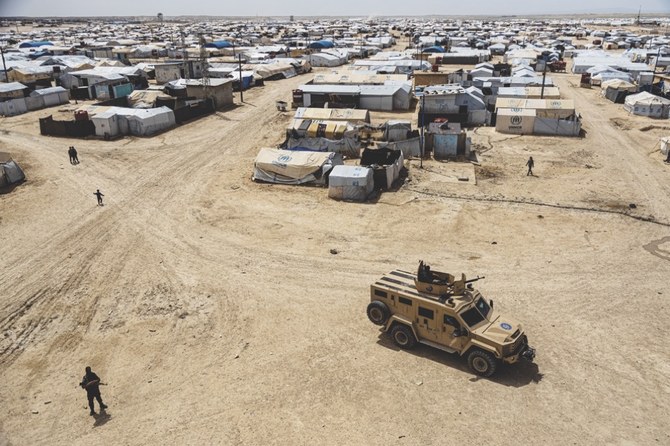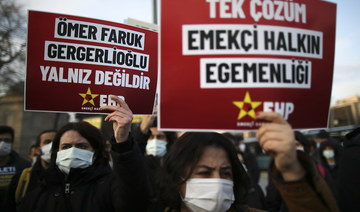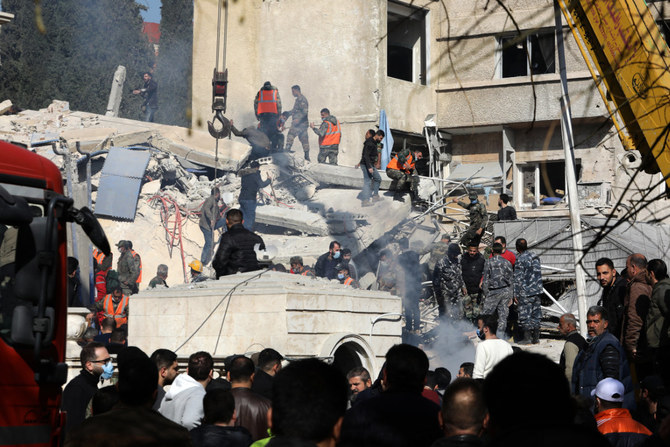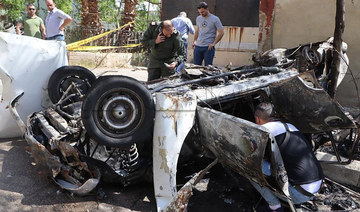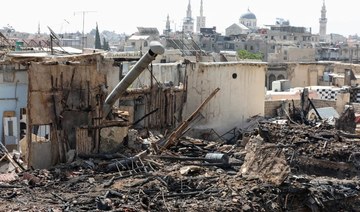DUBAI: These days, social media is full of images and videos of children in various postures of remote learning, ranging from sleeping soundly on the study table to turning desks and chairs into makeshift swings.
After months of navigating the social complexities of the pandemic, even adults are feeling the mental strain of lockdowns and safety measures.
As the “new normal” drags on, many complain that the supply of patience and energy is depleting.
For children with special needs, the effects are far more pronounced. “It has affected them psychologically because they’re not used to so many months of home confinement, sometimes without electricity or water,” Mohammed Dawoud told Arab News from Gaza, where he cares for his brothers Haytham and Hamza. Both have cerebral palsy.
Long weeks spent indoors have made his usually unflappable brothers much angrier, Dawoud said, adding: “I noticed it when talking to them and by seeing how they shout at each other.”
People with special needs are often deeply attached to consistent daily routines, which have been turned upside down by lockdown measures.
“I think a lot of them thrive in environments that they’re used to. They also have a certain schedule, a certain structure,” said Alba Quadros, a special educational needs and teaching expert based in Dubai. “Because of the lockdown, this has completely crashed.”
The closure of public spaces and schools, as well as limitations on social functions, to help curb the spread of coronavirus have also affected socializing with their peers.
“The challenge mainly was not being able to meet friends,” Suneeta Ramakrishnan told Arab News from Dubai, describing the impact of the lockdown on her son Siddharth.
“He used to go to the nearby shops to buy basic groceries, and to his Special Needs Future Development Center independently, which got stopped.”
Gina Rasmi, who lives in Egypt, said she has tried everything to help break the monotony of life under lockdown for her 14-year-old son Marc.
“It was very hard. Sitting at home made him angry, so I used to take him on car rides and drive around for an hour or two. At least he feels happy that he went out,” Rasmi added.
Although many governments have adopted distance education to overcome gaps in the learning process, some special-needs children in Lebanon are missing out.
INNUMBERS
- 68.9% - Illiteracy rate among over-15 males with disabilities in Palestine’s rural areas.
- 1.7 million - Persons with reported disabilities in Morocco in 2014.
- 677,492 Persons with reported disabilities in Iraq in 2013.
- 4x - Difference in proportion of persons without disabilities having attained some form of education and persons with disabilities in Oman.
- Source: WHO
“A lot of children didn’t benefit from online learning due to parents’ inability to help their children and the constant disruptions in electricity and the internet,” said Kamal Nasr, administrator of the Robouana Social Charitable Association in Lebanon.
Some parents are not familiar with the technology or the special curriculum designed to help their children, while others simply cannot afford a home computer, Nasr added.
Moreover, not all special-needs people respond the same way to distance learning, with many preferring in-person sessions.
Through her initiative Determined and Dramatic, Quadros is working with special-needs children in Dubai to produce a virtual play about the effects of the pandemic on their daily lives.
“I have a couple of actors who respond much better to face-to-face instructions,” she said. “I had to make sure they learned their lines, but how to deliver them is something I was only able to do once the lockdown was lifted.”
On top of all this is the strain that COVID-19 has placed on the global economy, which has burdened households with additional financial worries.
Half a billion people are expected to be pushed into poverty by the pandemic’s economic fallout.
An estimated 400 million jobs have already been lost, and the International Labour Organization estimates that more than 430 million small enterprises are at risk.
Across the Middle East, families are being pushed into poverty. “I had a mum who’d just recently lost her job. She comes from a middle-class family and yet she didn’t have wi-fi at home, so it was very difficult to rehearse with her son online,” Quadros said.

Children with special needs are participate in a ‘Let’s walk the Walk Together’ race in Jeddah. They are among the estimated 450,000 people with intellectual disabilities in Saudi Arabia. (Supplied)
Providing even the barest of essentials is becoming a struggle for many households. “Prices have doubled. I stopped buying vitamins and fresh fruits,” said Dawoud.
“I try as much as possible to buy groceries, but public transport has stopped and the money isn’t enough. There are eight months of rent which I haven’t paid yet.”
Hopes that some kind of assistance from the government or charities in Gaza would be forthcoming were quickly dashed. “No one has bothered,” Dawoud said.
Families in Lebanon face similar difficulties. “The (special-needs) associations used to cover part of the expenses,” providing children in their care with snacks and three meals a day, Nasr said.
But government funding, which was barely enough to cover expenses, salaries and fuel for heaters before the crisis, has not been paid since 2019, he added.
Since Middle East governments began easing lockdown measures, populations have been forced to adapt to the new normal. Parents are now faced with the challenge of explaining safety measures to their children.
At the Hope Academy in Egypt, were Rasmi’s son Marc is a pupil, teachers and parents are doing their best to educate the children without scaring them.
“We shouldn’t scare them and make them feel like life has now become bad. We should just tell them, ‘It’s a phase and it’ll pass, but during that time we have to protect ourselves so we don’t get sick’,” Rasmi said.
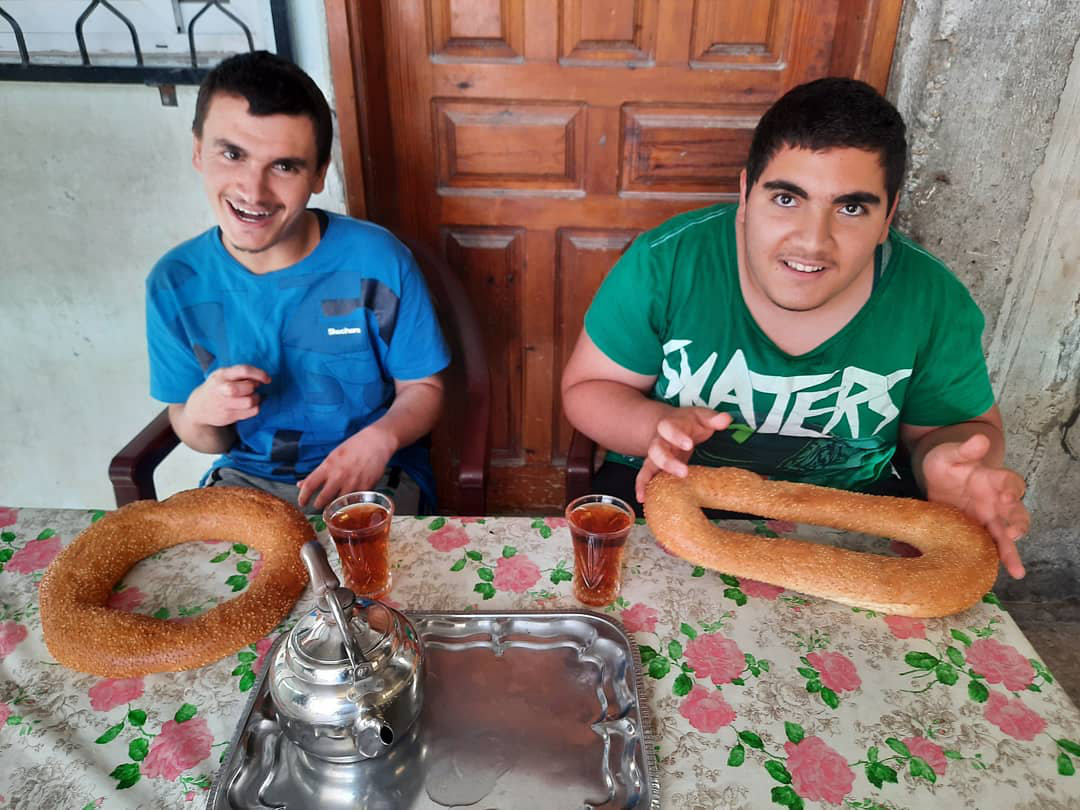
Hamza Dawoud, right, and his brother Haytham, who both have cerebral palsy, have found it hard to cope with being confined to home. (Supplied)
Parents and staff have taught their children to wash their hands regularly, to wear a face mask and to follow social distancing rules.
“A lot of the children can follow (the safety measures), and those who can’t we make sure we wash their hands and take care of the other instructions,” Rasmi said.
Other schools have started house visits to check on the students and their families, said Nasr of the Robouana Social Charitable Association.
“We also organized a one-day event to teach them about coronavirus, its symptoms and precaution methods through a small performance and some games,” he added.
Some parents, such as Siddharth’s mum Ramakrishnan, have used this period of isolation to teach their children how to use voice-messaging and online shopping apps.
“He has made a time schedule to get in touch with his friends, grandparents and other family members by learning how to use these apps. This has helped him learn about ‘turn taking’ while talking,” Ramakrishnan said.
Although the pandemic has placed immense strains on households, Quadros sees a silver lining for children with special needs: More time with mum and dad.
“They were able to have their parents around and to have them fully,” she said. “I feel like they were able to cope because there was a lot of family time.”
______________








